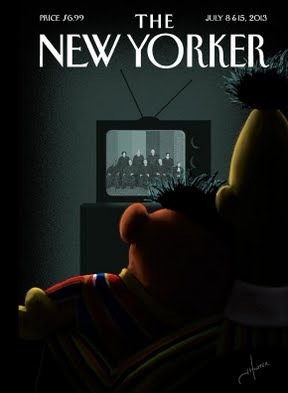In today’s Sun: ten reasons why Harper may quit
It’s (finally) summertime, when the political speculation is easy.
Heretofore, the subject that no longer seems as crazy as it once did: Will Stephen Harper quit before the next federal election in October 2015?
There are plenty of reasons why he shouldn’t, or why he won’t.
But there are 10 very good reasons why he just might, too. Here they be:
1. Ten years is a long time: By the time the next election takes place, Harper will have been in power for nearly a decade. Very few last that long, and those who overstay their welcome inevitably end up regretting their decision. After that much time has gone by, voters start to get sick of your face.
2. He could lose. As pollsters have been saying for months, Liberal Leader Justin Trudeau is the real deal. By now, it is clear that his popularity is no passing fad. For the first time, Harper needs to consider the possibility that he could to lose to someone he clearly considers his inferior. He doesn’t want to do that.
3. His party is getting restless. As Alberta Wildrose supporter Rod Love once observed: “When the water dries up, the animals begin to look at each other differently.” So too in politics. Harper’s backbench is no longer afraid of him, and rebelling. His PMO is heartily detested throughout the Conservative hinterland. To many Conservatives, Harper is being quietly regarded as a liability, and not an asset.
4. Leadership shenanigans abound: Jason Kenney has been running a leadership campaign for months; Peter MacKay is warning he will quit the party if he doesn’t get his way on leadership selection rules. Harper, mindful of what Jean Chretien endured, may be persuaded to choose discretion over valour.
5. He is not a wealthy man: Harper and his wife own their Calgary home, but not much else. And, as Calgary Conservative legend Harvie Andre once queried: “Why is it more profitable to know Harvie Andre than to be Harvie Andre?” Harper, knowing this, may decide he needs to build up a retirement nest egg while he still can.
6. He’s a young man: Not even 60, Harper has many prime earning years ahead of him — as a corporate rainmaker, as a member of lucrative boards, as the giver of big-ticket speeches. Why wait until he can’t enjoy the fruits of his labours? Why not go while the getting’s good?
7. Everything starts to look the same: After 10 years in the same job, new files aren’t as exciting or as challenging as they once were. Things develop a sameness to them; boredom and sloppiness start to set in. When that happens, it’s time to go.
8. The Cons don’t stand for anything anymore: Even the party faithful are admitting the mission statement is long forgotten. They have become, in effect, what they came to Ottawa to destroy. Even Harper, a policy wonk and partisan, would be hard pressed to express his party’s raison d’etre. Canadians sure can’t.
9. The job is done: Harper wanted to do three things. One, reduce the Liberal Party to a shadow of its former self. Two, unite conservatives as a single political force. Three, make conservativism a less radical political choice. He has indisputably done all three. His legacy is achieved.
10. Him: Watch him. Listen to him. There is no joy in the job for him anymore. There is no challenge. He looks unhappy.
Will he go?
Who knows?
But no one should be surprised, now, if he does.




